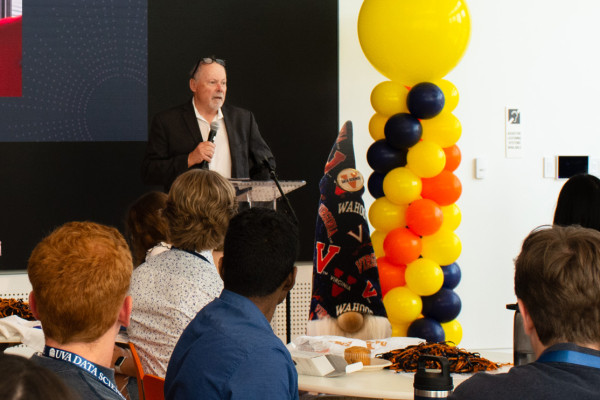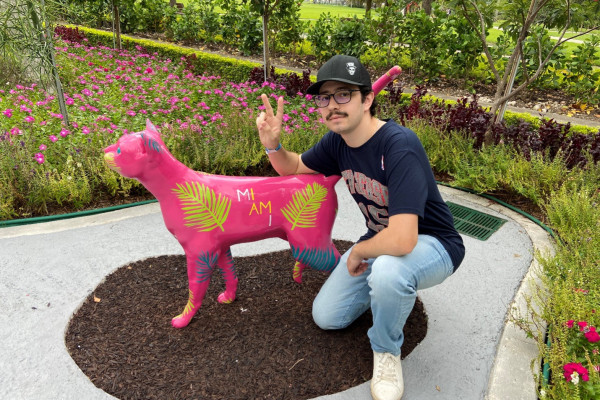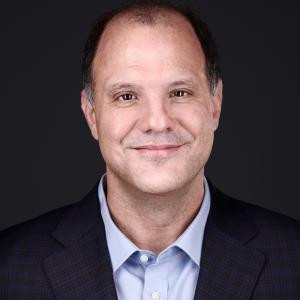
Changes to Data Science Master’s Program Expand Student Opportunities
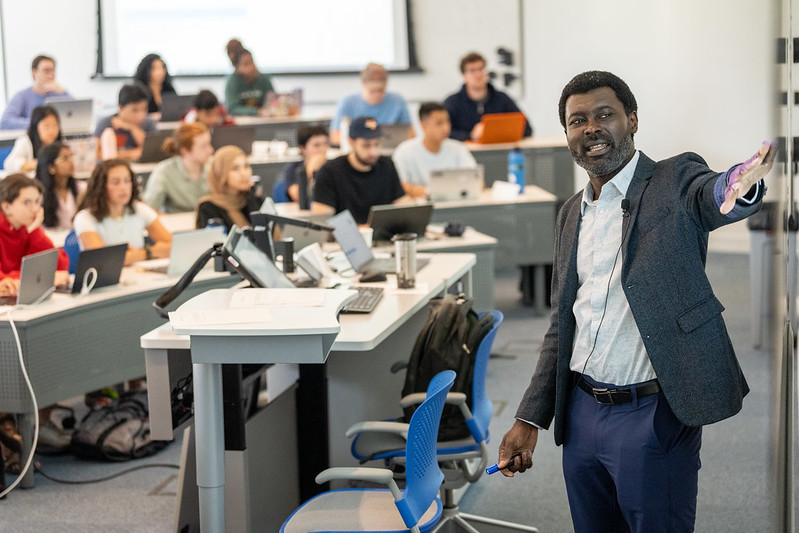
The University of Virginia’s School of Data Science is making an array of changes to its master’s programs next year, all aimed at strengthening the curriculum, enhancing the student experience, broadening student opportunities, and developing the next generation of data science leaders.
The changes will take effect for students who matriculate in the fall 2025 term.
The decision to modernize the program was motivated, in part, by the need to ensure the curriculum, which was first developed in 2014, kept pace with rapid technological change.
"You can only do so much by changing the content in the classes to keep things up to date," said Jeffrey Blume, Quantitative Foundation Associate Dean for Academic and Faculty Affairs in Data Science. "You’re still limited by the structure with which you originally organized the program, and that’s what we found we needed to change."
Faculty and staff went to work to revise the curriculum, adjusting its course sequence and, in some cases, accelerating certain courses to offer more sophisticated content.
"It used to be that the program would conclude with a course in deep learning in the final semester. But now you need to understand deep learning models to build large language models, so deep learning needed to be taught earlier to leave room for large language models. This required rethinking how and when we introduce deep learning," Blume said, explaining one of the sequencing changes.
The program is also creating a new required class called Understanding Uncertainty to address a critical need as the field of data science continues to evolve.

"We can teach students algorithms, but the harder task is to teach them how to assess and explain what’s reliable and what’s not and why. There were some basic principles that needed strengthening, as the focus in machine learning shifts from ‘Can I do this?’ to ‘How reliable is this?’," Blume said. This new class, he noted, will teach students how to think about and assess the reliability of findings and algorithms in real world settings when "things are messy."
The Programming for Data Science course, which was previously required in a student’s first term, is also being altered.
"Everyone loved the course, but more than half of the students said, ‘Yeah, I basically already knew most of this,'" Blume said.
Going forward, students will undergo a summer assessment to see which skills they need to brush up on. Then, they can take whichever portions of the online programming class they need so they are well prepared to begin the program.
The residential and online degrees will also now require the completion of 33 credit hours rather than 32, with the extra hour reflected in Data Ethics becoming a 3-hour course.
Changes to the program go beyond the curriculum, with an emphasis placed on easing the transitions of students into graduate school life and ensuring they can take advantage of professional opportunities during their time at UVA.
One of the more notable changes for the residential master’s program is a change in its start date.
Previously, students began the program in the summer. However, after listening to student feedback, the School of Data Science decided to shift the start date to the fall, a move provides some needed breathing room for graduates, allows students more time to find housing and allows international students more time to acquire a visa.
Finding readily available housing had become "a really significant pain point" for incoming students, said Sadie Royal Collins, director of academic operations and admissions at the School of Data Science — particularly for students who were moving to Charlottesville just weeks after completing their undergraduate degree.

"There’s a little bit more breathing room" by moving the start of the program to the fall, she said, with students having the summer to make housing arrangements. Not to mention, she added, the extra break between completing their undergraduate degree and beginning graduate studies will offer students a much-needed break.
The change in start date will also address another key concern of students: the ability to pursue an internship before they graduate.
Under the previous structure of the residential curriculum — which spanned 11 months, beginning in June and ending in May — there was no room in the schedule for students to complete an internship.
Going forward, students who wish to do an internship can do so and graduate at the end of the fall term of their second year in the program. Meanwhile, students who choose not to complete an internship can still graduate in just under a year.
Allowing students to fashion the program in a way that best sets them up for success was a priority, Royal Collins said, particularly given the varied backgrounds of those who come to the School of Data Science.
And all students, she believes, could benefit from the graduation timing option, whether it’s in August or December: "I think employers are going to be excited that our students can start earlier than a lot of other students."
The ability to do an internship will also further strengthen the capstone experience for residential students, said Prince Afriyie, an associate professor of data science and director of the residential master’s program.
"The highlight of our program, and what distinguishes our program from others, is our capstone requirement, which impels students to apply what they have learned in the classroom to real-life application problems," he said. "The revised curriculum will bolster the capstone experience by also allowing students to model their internships to fulfill the requirement."
While the opportunity to pursue internships isn’t a need for online students, since they’re working professionals, Royal Collins said she believes the curriculum changes — such as beginning the program with an ethics course, expanding electives, and ensuring coursework reflects the latest industry demands — will benefit them as well.
Jonathan Kropko, Quantitative Foundation Associate Professor of Data Science and director of the online master’s program, echoed that, saying said the curriculum redesign will allow the School to reorganize when online courses are offered, providing a better experience to the program’s online students.
"We can try to balance the courses better in terms of topic and workload," he said. "Right now, we are working on a model where students enroll in one analytics/machine learning-focused course each semester and one course on data systems and engineering. This new course progression will also allow us to better build on knowledge from one course to the next and make the program more of a cohesive narrative from semester 1 to 5."
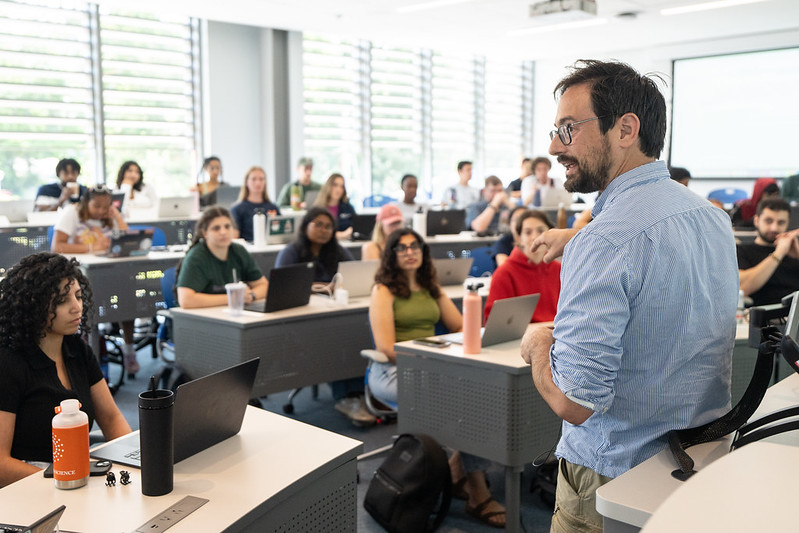
Of all the changes, Royal Collins said she’s most excited about the flexibility students will have to make the most of their time at the School of Data Science.
The overall impact of revamping the program, she says, will "hopefully help students feel like they’ve authored their own experience in a way that works best for them."
Blume said that, in addition to the concepts that will be emphasized in the new Understanding Uncertainty class, he’s most excited about changes to the machine learning sequence — and students getting the opportunity to apply what they learn in those classes in their electives.
A focus will be placed on not just introducing new tools but emphasizing to students the principles by which they work, he said: "I think in the long run this approach will make it easier for graduates to adapt and keep up with new techniques and tools they come out."
Looking ahead, the School of Data Science will look to develop additional elective options for students, including on large language models, and continually assess how the changes are affecting student experiences.
The goal, as it has been since the program’s inception, will be to ensure students who graduate with a master’s degree in data science from UVA are ready to make a difference in a rapidly expanding field.
"In a nutshell, the new curriculum builds on what we have, teaching students new and cutting-edge techniques in data science, as well as affords them more freedom to apply data science to real-life problems," Afriyie said.

